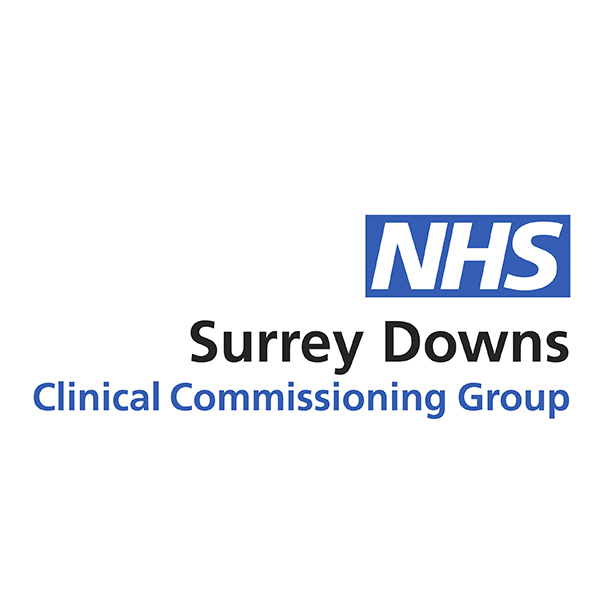-
What not to say to someone with an eating disorder
For Eating Disorders Awareness Week, one of our supporters writes about the common mistakes people make when talking to someone with an eating disorder and what to do instead.

-
“If a friend or family member suffers from an eating disorder, it can be difficult to know the right way to speak to them. You might feel genuine terror about saying the wrong thing and the impact that it could have on that person’s life. You probably want to help them, to make things better, or just to connect with them – especially as it can feel like that person’s eating disorder is taking them away from you. Some people describe having an eating disorder as like being in a very controlling, all-consuming relationship, so it’s only natural that loved ones could be left feeling abandoned.
You can only do your best and everyone gets it wrong sometimes. But it can be useful to learn some definite ‘no-nos’ when talking to someone with an eating disorder. Everyone is different and will have their own specific triggers but, writing from experience, there are things we’ve all heard at some point which were particularly detrimental and definitely best avoided.
So here is a list that I have started. Anyone who has also experienced an eating disorder, please feel free to add your own!
“Why don’t you just eat?”
This straightforward solution has probably occurred to that person at some point. But, if it was that easy, eating disorder treatment would probably look a bit different. Instead of having specialist clinicians, they could just offer some kind of ‘drive-through’ service where someone with a loud voice would bark dietary advice through a loudspeaker.Statements like this do not work. Eating disorders are complex mental health conditions and offering simple solutions will probably (and understandably) upset that person.
“Oh, I do that” – usually said after someone with an eating disorder tells you about something risky that they do.
The intentions of comments like these tend to be about trying to cheer that person up, or trying to make the person with an eating disorder feel a bit more ‘normal’. It might also come from someone trying to convince themselves that their friend or family member isn’t that unwell, by suggesting that this person’s behaviours fall within the realm of what a person without an eating disorder might do.This is not helpful. It validates behaviour that the person with an eating disorder has recognised themselves as being problematic. It also trivialises a very dangerous illness by comparing it to a diet ‘fad’.
These comparative comments might also come from someone with an eating disorder themselves, but who hasn’t yet recognised that they have a problem. If this is you, instead of giving the green light to someone else’s disorder, take time to reflect and reach out for help yourself. Recovery from an eating disorder is possible. You deserve to be well, you deserve to feel happiness and you deserve a life that is more than the existence that an eating disorder will allow you to have.
“You don’t look that unwell”
There are many different types of eating disorders. Some cause a low body weight, some don’t. Telling someone who confides in you about their eating disorder that they don’t look that unwell is telling them that they don’t deserve treatment, that they are over-reacting – and this is likely to exacerbate the disorder. That person is hearing that they are not thin enough and not worthy of care. Eating disorders are often linked to very low self-esteem so this should be avoided at all costs.“There is so much pressure in the media to look a certain way now…”
Although depictions of ideal body types can be detrimental to people with an eating disorder, magazines do not cause these illnesses. There are many factors that can influence someone’s likelihood of becoming unwell with an eating disorder, including genetic and biological causes, problems with psychological or emotional health, or environmental factors including a history of trauma, family dysfunction or stress.Suggestions that there is a link between eating disorders and vanity are also completely incorrect. Avoid avoid avoid.
“I think the weight you’re at now looks perfect for you.”
This is usually said to people in treatment, who have put on weight as part of their recovery but still have a fair bit to go. Someone’s target weight is calculated by a professional and it is not a number that is pulled out of the air – it takes into consideration that person’s BMI, that person’s weight history and what is deemed healthy for that person. Your input is not needed and suggesting that someone looks good at a point in their recovery when they haven’t reached their target weight can cause great distress.“You look so healthy/well now!”
This is usually a well-meaning comment which is said to someone who is at a healthier/less risky weight than they used to be. Unfortunately, it is not often received as a compliment. If you want to say something nice to someone who is in recovery, focus on things that are separate from their physical appearance. Perhaps note how much happier they seem now, how much you’ve enjoyed seeing them or how nice it is to see them doing things that they used to enjoy.So what can you do instead?
The fact that you read this blog about what ‘not’ to say to someone with an eating disorder shows that you are a kind person who cares about people and wants to support them in the best way possible. Thank you for being a great ally!
If a friend or relative confides in you about an eating disorder, listen to them without judgement and do take it seriously as you may be the first person they open up to about it. You don’t have to find the cure for them yourself. Instead advise them to get help from a professional and support them to make that first phone call or go to that first appointment with them, if they would find it helpful.
To get support, you can call the Beat Adult helpline on 0808 801 0677 or, if you are under 18, you can call the Beat Youthline on 0808 801 0711. The Beat helplines are open 365 days a year from 12pm–8pm during the week, and 4pm–8pm on weekends and bank holidays. Beat is the UK’s eating disorders charity – their website has a lot of information and resources about eating disorder – it is well worth a visit. Or you can visit your GP who will signpost you to the best professional near you.
Eating Disorders Awareness Week exists to raise awareness of and beat eating disorders. An estimated 1.25 million people in the UK are living with an eating disorder right now. Yet behind every one is a network of friends and family supporting them. This adds up to 5 million people struggling to cope with eating disorders. If you would like to show your support and get involved in the campaign, visit the Beat website.
Want to write a blog for us?
If you’d like to share your mental health journey with us via a blog, a video, a poem, a song – whatever form speaks to you most – please contact Connie, our Communications Lead, at connie@maryfrancestrust.org.uk. Please note we do not accept submissions from professional bloggers – our platform is reserved to our clients, volunteers, staff and supporters.
Share






